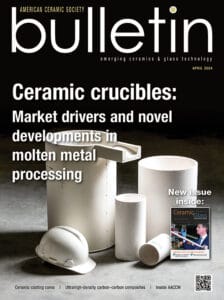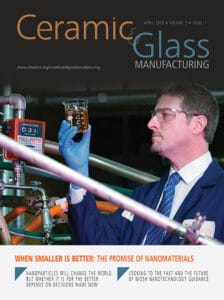The future safety and sustainability of nuclear energy systems based on fission and fusion technologies are strongly correlated to the development and application of advanced materials capable of withstanding the ever increasingly harsh environments of a nuclear reactor core.
This international symposium will bring together scientists and engineers to discuss opportunities and needs in key enabling materials for application in nuclear energy systems. This will include the most up-to-date science and state-of-the-art technologies, ranging from materials design and development, processing, and performance under relevant nuclear environments. Also, included will be discussions on prospects and perspectives related to commercial development, and qualification and licensing requirements. The symposium is co-sponsored by the ACerS Energy Materials and Systems Division.
Proposed Session Topics
- Material technologies for enhanced accident tolerance LWR fuels and core
- Ceramic fuel materials, technologies, and characterization; TRISO fuels
- Graphite and carbon materials for nuclear applications
- High temperature ceramics for space reactor applications
- New materials and containment for neutron moderators, reflectors, and shielding
- Novel ceramics and composites for nuclear systems
- Joining and coating technologies for reactor components
- Chemical compatibility and corrosion
- Radiation damage, defect production, evolutions, and interactions
- Advanced characterization techniques and methods
- Fuel, cladding, assembly, and core evolutions and performance modeling
- Test methods, codes and standards, design methodology, and material qualification
Symposium Organizers
- Takaaki Koyanagi, Oak Ridge National Laboratory, USA
- Kyle Brinkman, Clemson University, USA
- Monica Ferraris, Politecnico di Torino, Italy
- Tatsuya Hinoki, Kyoto University, Japan
- Dong Liu, University of Bristol, UK
- Caen Ang, USNC-Technologies, USA
- Kelsa Palomares, Analytical Mechanics Associates, USA
- Samuel Humphry-Baker, Imperial College London, UK
- David Sprouster, Stony Brook University, USA
Point of Contact
- Takaaki Koyanagi: koyanagit@ornl.gov
Subscribe to Ceramic Tech Today

Don’t miss the latest ceramic and glass materials news. Receive the CTT newsletter to your email three times a week by subscribing at this link.
Subscribe to Ceramic & Glass Manufacturing Weekly

Don’t miss the latest ceramic and glass business news. Receive the C&GM Weekly newsletter to your email every Monday by subscribing at this link.


